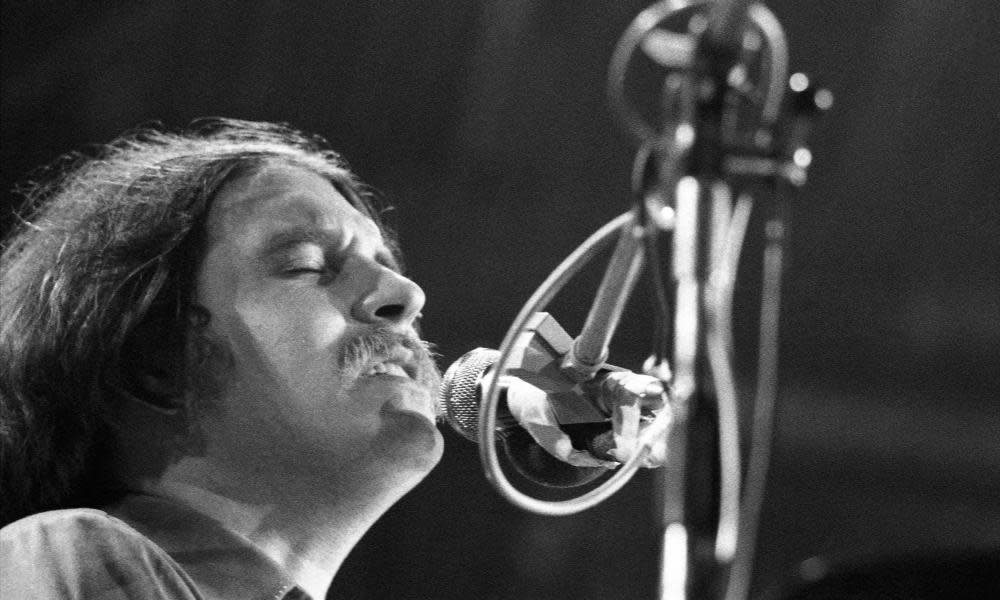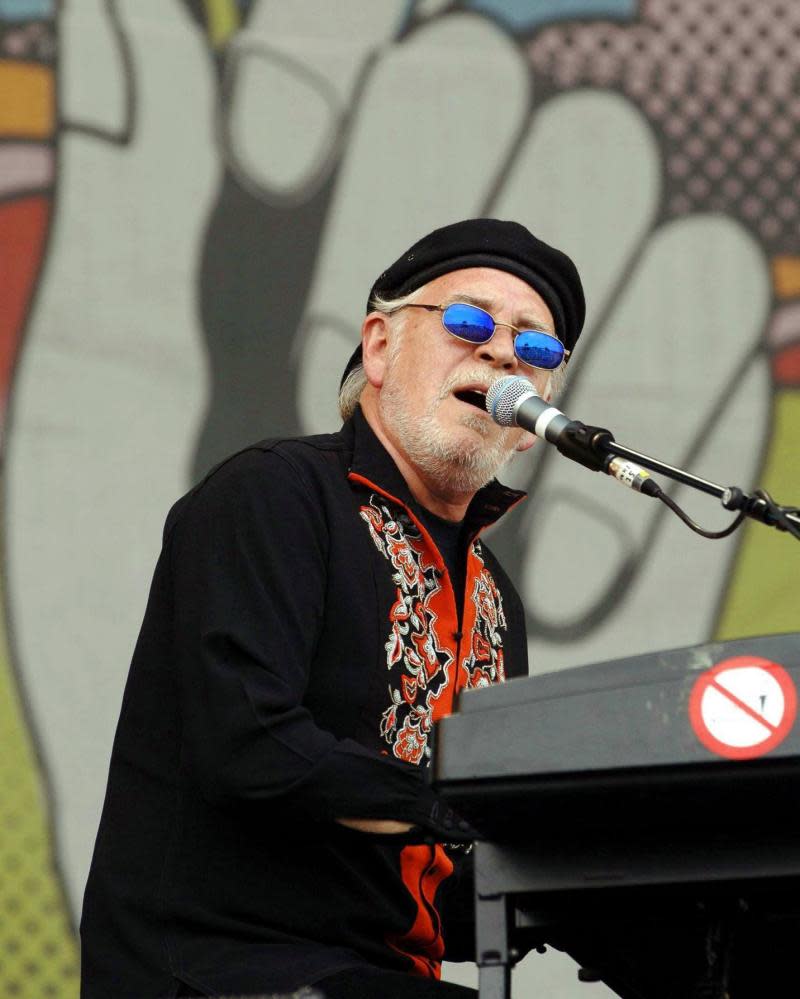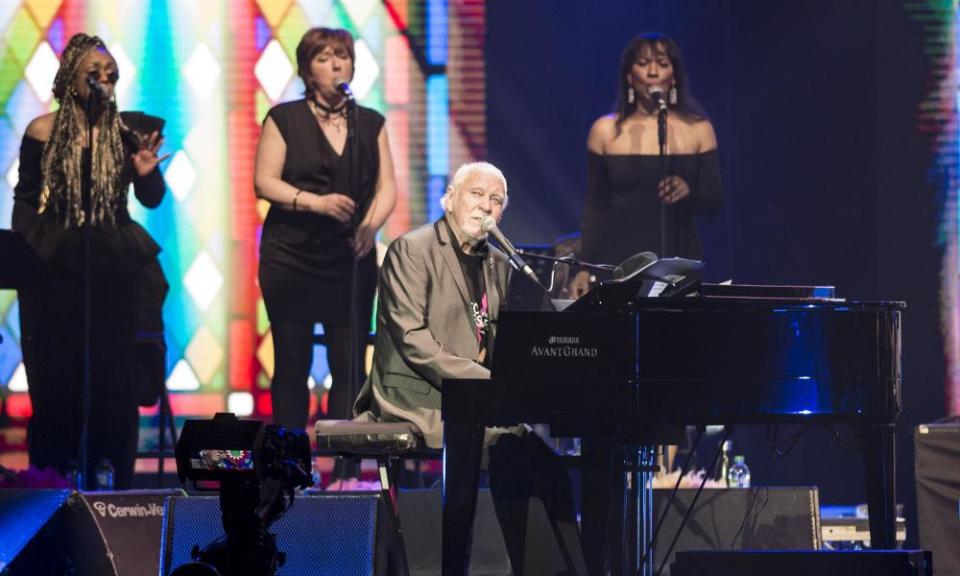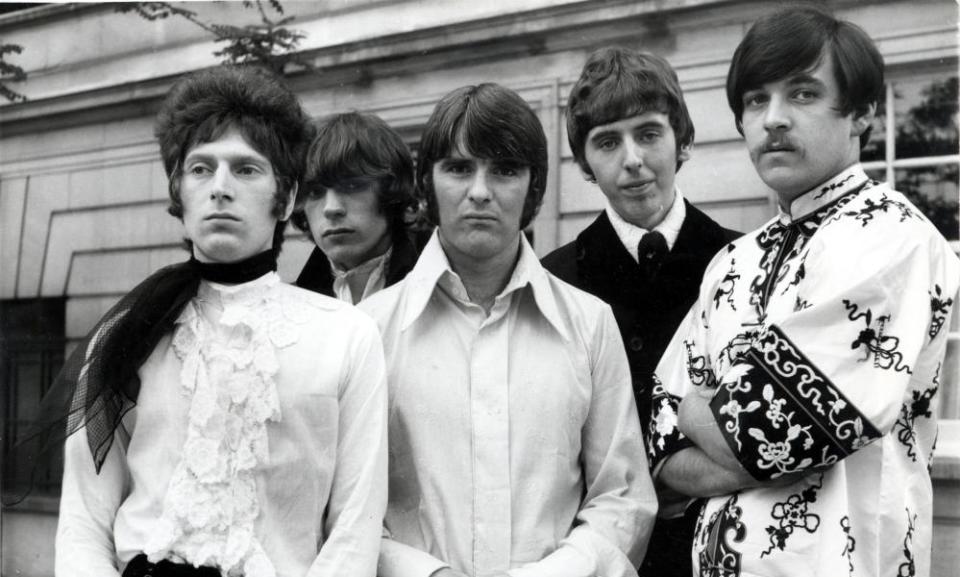Gary Brooker obituary

When it was released as a single in May 1967, Procol Harum’s A Whiter Shade of Pale proved an immediate sensation in that year of psychedelia and Sgt Pepper. Gary Brooker, who sang it in his expressively blues-inflected voice and wrote the music to accompany Keith Reid’s lyrics, described how he had been influenced by Jacques Loussier’s interpretation of JS Bach’s Air from his Orchestral Suite No 3 in D major.
“The original Hamlet cigar commercial featuring Air on a G String had always been a favourite of ours,” said Brooker, who has died of cancer aged 76. “When the guy lit up the cigar everything just went cool.” But A Whiter Shade of Pale was not just cool, but also stately and mysterious and determined not to give up its secrets easily. Matthew Fisher’s haunting Hammond organ theme seemed to impart an aura of infinite wistfulness.

A Whiter Shade of Pale topped the charts in the UK, Australia and Canada, and went to No 5 in the US. It was by far the biggest hit of the group’s career, though a live version of Conquistador took them into the US Top 20 in 1972, and they revisited the UK Top 20 with Pandora’s Box in 1975. With Brooker the focal point as the group went through numerous lineup changes, their chart performances were patchy. While they scored several Top 30 album entries on either side of the Atlantic and a US No 5 for their 1972 live album recorded with the Edmonton Symphony Orchestra, they created a lasting aura that was beyond mere chart statistics.
They had a charisma that turned a number of eminent listeners into fans, including the writer Douglas Adams, who credited the band’s song Grand Hotel with inspiring his book The Restaurant at the End of the Universe. The film director Martin Scorsese, who was particularly fond of their third album, A Salty Dog (1969), wrote about Procol Harum in the foreword to Henry Scott-Irvine’s 2012 biography of the band: “The point was not so much what the songs were saying, specifically, as what they were suggesting to each of us, individually.”
Brooker was born in London, to Violet and Harry Brooker. He recalled that his family “had our own house in Bush Hill Park, a leafy suburb of Enfield, and I remember life being very comfortable”. Harry was a professional musician who played the pedal steel guitar with Felix Mendelssohn’s Hawaiian Serenaders. The band secured a residency in Southend-on-Sea, Essex, with the family moving there in 1954. Brooker’s mother “encouraged me to have a profession, as long as it wasn’t music”. When Gary was 11 his father died suddenly, forcing Violet to work on a factory assembly line while Gary helped out by doing an early-morning paper round.
He attended Westcliff high school for boys, while studying the piano with Ronald Meachen, under whose unorthodox guidance Brooker’s playing developed rapidly. When he was 12 he joined a skiffle group, the Electrics, then formed the Coasters, playing rock’n’roll instrumentals. When a local entrepreneur, Peter Martin, conceived the notion of forming a new band called the Paramounts by recruiting members from several groups, he hired Brooker to play the piano. The Paramounts included three other future members of Procol Harum, the guitarist Robin Trower, drummer BJ Wilson and guitarist (later bassist) Chris Copping.
The Paramounts developed a reputation as an accomplished rock’n’roll and R&B band, and impressed the Rolling Stones when they supported them at a gig in Walmer in Kent in September 1963. Keith Richards told Melody Maker in March 1964 that the Paramounts were “one of the best groups to come up for a long time”.

In late 1963 they were signed by EMI’s Parlophone label, and their recording of the Leiber and Stoller composition Poison Ivy reached No 35 on the UK chart. It was to be the most successful of their seven single releases, though the Paramounts enjoyed a number of career highlights before they split in mid-1966. They also played some gigs backing Sandie Shaw, including one at the Paris Olympia with an orchestra, and a couple of dates supporting the Beatles on their last British concert tour in December 1965.
Brooker dissolved the band to concentrate on songwriting and, at the instigation of the producer and A&R man Guy Stevens, got together with the lyricist Keith Reid. One of the songs they wrote together was A Whiter Shade of Pale, apparently inspired by a remark by Stevens to his wife, Diane, about her pallid appearance. Reid and Stevens set about building a new group to perform their songs, with the name Procol Harum taken from a Siamese cat belonging to a mutual friend. A Whiter Shade of Pale was released as a single and sailed into history.
After Procol Harum split up in 1977, Brooker pursued a solo career and released the albums No More Fear of Flying (1979), Lead Me to the Water (1982) and Echoes in the Night (1985). In 1979 he joined Eric Clapton’s band, appearing on the album Another Ticket. He was in demand with many high-profile names, and toured with Ringo Starr’s All-Starr Band and Bill Wyman’s Rhythm Kings. He performed at the George Harrison tribute, Concert For George, in November 2002, having featured on Harrison’s albums All Things Must Pass, Somewhere In England and Gone Troppo. He also appeared on recordings by the Hollies, the Alan Parsons Project and Kate Bush.

In 1991 Procol Harum reformed and released the album The Prodigal Stranger, the prelude to years of successful international touring. In 2007, fans organised a 40th anniversary tribute to A Whiter Shade of Pale comprising two concerts at St John’s Smith Square in London, one by Procol Harum and one by Gary Brooker & Friends.
Another committed Procol Harum fan was the film director Alan Parker, who cast Brooker as the Argentine foreign minister Juan Atilio Bramuglia in his film of Evita (1996).
From 2005 to 2009, Brooker was engaged in a lawsuit with Fisher, in which Fisher claimed he co-wrote the music for A Whiter Shade of Pale. The law lords finally ruled in Fisher’s favour, entitling him to a share of the song’s future royalties. Brooker later estimated the case had cost him £1m, but “I haven’t totalled it up because it would frighten me too much”.
He received an award from the British Academy of Songwriters, Composers and Authors in 2009 for his contribution to music, and in 2003 was made MBE.
He is survived by his wife, Franky Riedo, whom he married in 1968.
• Gary Brooker, musician, singer and songwriter, born 29 May 1945; died 19 February 2022

 Yahoo News
Yahoo News 
